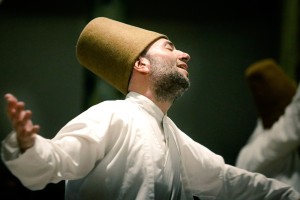
The literary circle

A stalwart in the fields of poetry and play scripting, besides having had a decade long stint in the world of advertising Anju Makhija has covered a long illustrious journey in the realms of creative writing.
After graduating from the prestigious St Xavier’s college in South Bombay, Anju later pursued her master’s in Communications, in Canada, before turning into a full time advertising professional. Anju though pursuing a western style of work culture, was firmly rooted to her home land. This sense of bonding made her return to India and take a plunge into creative endeavours that centred on works of Sindhi poets and playwrights reaching a global audience. Speaking to globalbihari.com consulting editor Venkatesh Raghavan, she sheds light on her trysts with different genres of creative and social work.
Excerpts from the interview:
VR: What prompted you to come back from Canada where you were pursuing a successful professional career?
AM: I always stayed rooted to my nativity. At a point of time, while attending to creative expression in the advertising world, I felt a strong urge to get back and explore the wealth of literature that had emanated from the stables of Sindhi intellectuals. That’s when I began my fresh innings after returning to Bombay.
VR: As a second generation Sindhi settled in India post the partition trauma what are your impressions of Pakistan?
AM: I cherish our old family ties with Sindhi artists and poets especially of the Sufi fold who had contributed richly to Sindhi literature. Art and culture transcend all boundaries and stay untouched by political influences. We had strong ties with families on the other side of our border and also enjoyed visiting each other for cultural exchanges.
VR How was your stint till you received a Sahitya Academy award for your efforts in bringing the works of Sindhi poetry to a global audience?
AM: I had spent a long time, painstakingly translating the works of Sufi poet Shah Latif. It was also at times reminiscent of the terrain in Sindh that now falls under Pakistan. My efforts won recognition after I made an anthology of Sufi poetry. I did spend a long time pouring over volumes of poetic verses that were composed in Sindhi. Another Sufi poet who’s works merited attention was Sachal Sarmast. His literary works had great depth and carried a lot of meaning.
VR: You have also been active in promoting the creative efforts of children from under privileged and vernacular backgrounds. Can you tell us more about this endeavour?
AM: Journey in helping and showcasing talents from remote or rural backgrounds got on course after I had an informal tie up with the Yusuf Meherally Centre located in Panvel, a short distance from my farm house. I became aware of schooling arrangements for boys and girls set up by the Centre. My first attempt was setting up a library for the children. It initiated as a trunk library, with books related to extra reading at school levels.
As of now we have planned the setting up of a proper full fledged library. Our efforts are bearing fruit with contributions pouring in from various donors. I also informally take part in helping children in my own small ways like distributing gifts, toys and sweet meat.
VR: Can you tell us about your latest literary project?
AM: I have come out with an edition of plays christened Mumbai Traps that dwell on various aspects of social life in the city’s heartlands. The book of plays is yet to get published. Kittu Gidwani recited from my book of plays in a recently conducted reading session. Once this hits the stands, I plan to expand my sphere of creative works. It will take time to decide. It’s better to wait and watch.





